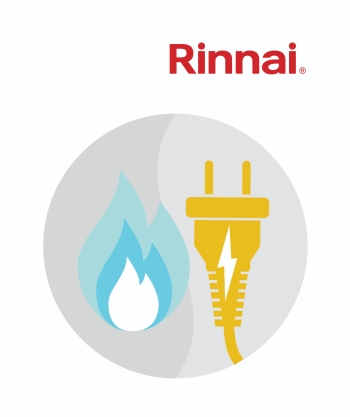As the UK moves towards a general election both the opposition party and current UK government are viewing energy costs as a weapon that can be used to attract electoral ballots. Both parties are reviewing their approach to truncating domestic and commercial energy costs.
The current opposition party has made public proposals to reduce electrical costs by 23% to moderate UK customer energy costs. Rinnai has produced modelling and a set of calculations that are based on an accommodation block and feature four separate appliances in a heating hot water delivery system as below -:
- R290 System = 6x 50kW R290 HPs + 6x 800L HP Buffers.
- HP + E-Cylinder = 4x 95kW iMAX + 2x 800L HP Buffers + 2x 800L E-cylinders e/w 60kW Immersions.
- HP + WH System = 4x 95kW iMAX + 2x 800L HP Buffers + 4x N1600 + 2x 800L Pack Stores.
- WH System = 8x N1600 + 2x 1000L Pack Stores.
Following is a set of calculations based on the proposed 23% reduction in electrical costs the opposition party suggested as future policy using the above systems and appliances.
This analysis was carried out to understand how the operating cost of each system differs when using forecasted electricity costs, which suggest a reduction of 23% in national grid consumed electricity, compared to the current government forecasted national grid figures.
The below graph represents the current governments costs when used in an accommodation block application.
In the below graph please note that HP equates to Heat Pump and WH translates as Water Heater (system).
A Rinnai R290 heat pump will cost £105,192.60; a heat pump and electric cylinder will cost £165, 664.60; a heat pump and water heater system will cost £89,731.90 whilst a natural gas system will produce costs of £79, 980. 61. All costs are measured over a 5-year period.
Below is another graph that represents the costs related to Rinnai products considering the 23% reduction in electric costs the opposition party are forecasting. A Rinnai R290 heat pump will cost £80,998.30; a heat pump and electric cylinder will charge customers £127,561.74; a heat pump and water heater will cost UK customers £76,291.29, whilst a natural gas system will cost £79,980.61. Again, all costs are also based on 5 year period.
Under the current opposition party proposals to reduce electricity costs by 23% a clear beneficial increase is denoted in customer fiscal outlay over a 5-year period. In both graphs the costs relating to the natural gas system stay static and can therefore be overlooked.
Costs of operating a R290 heat pump over 5 years is presently £105,192.60 and under current opposition plans to reduce electrical costs by 23% will be £80,998.30.
A heat pump and electrical cylinder over 5 years presently costs UK customers £165, 664.60. Under opposition plans to offer reductions in electrical costs the same product will cost £127,561.74.
Whilst a heat pump and water heater using the same metric as above currently costs £89,731. 90. After reducing electrical costs by 23% the exact same product will require £76,291.29 over a 5-year period.
Clear reductions over a 5-year period are clear when observing heat pump and hybrid systems. Widespread electrification is a main objective by UK policy makers who aim to impose the cheapest electricity costs on UK households by 2035. Investing in a domestic or commercial application electric hybrid heating and hot water system could potentially result in huge reductions of operational costs.
One strong conclusion to be drawn from these figures is that all sites, consultants, contractors and end users should consider all factors before making a commitment to a system or appliances arrangement.
Contractors, consultants and installers who recognize the complexity of the current energy market should form partnerships with those organizations which have arranged their entire product offering to meet and exceed current and future energy policy.
